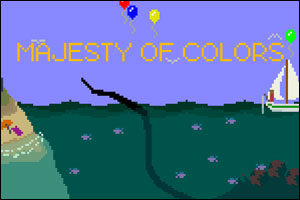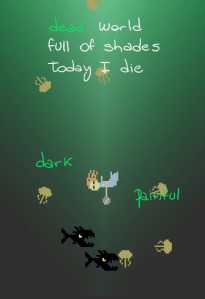During the war, writers were prohibited from telling love stories about widowed wives. Military and political leaders feared that such stories would only lead to moral degeneracy among widows. They wanted these women to spend the rest of their lives as exemplars of fidelity. The military was uniquely aware of the pitfalls of immorality. As a result, this prohibition was issued not because they didn’t understand the nature of a woman’s heart, but in fact, because they knew it all too well (1).
It is said that the samurai of old Japan did not understand the emotions of women. To me this is merely a superficial understanding of things. Bushido, the way of the samurai, was an exceedingly unrefined system of laws that was more than anything, a way for samurai to protect themselves against their own moral defects.
For a samurai, it is one’s duty to exact retribution upon his enemies by chasing them down to any extreme, even should he be required to become a beggar. But was there ever a loyal samurai who really felt a true burning desire for revenge and was compelled to chase down and slay his enemy? For samurai, all that mattered were the laws of revenge and the honor that it prescribed. While in fact, we Japanese are by nature a very forgiving people who do not hold grudges. Our true nature is a shared optimism that yesterday’s foe is today’s friend. Compromise and reconciliation with yesterday’s foe is a daily part of our lives. Our enemies exist precisely so that we might reconcile with them. We yearn to serve both our master and yesterday’s enemy (2). The Japanese people could never have been forced off to battle had we not been ordered to never endure the shame of being captured alive. We were obedient to the law, but our true feelings were exactly the opposite. The history of Japanese warfare is not a history of bushido, but a history of scheming and trickery. That is why we might know the mechanisms that move history not through relying on facts and evidence, but by looking inside ourselves. Just as our military leaders prohibited love stories about widowed women, the samurai of the past needed the bushido to protect themselves and their subordinates from both their own moral weaknesses.
—————————————————————————————————————————————————
(1) When Sakaguchi’s talks about immorality he does so not from his own perspective, but from the perspective of the military. His aim is not to judge what the military did, but to understand why it made sense as a viable option to them.
(2) Sakaguchi has taken a famous line and general saying from the Records of the Grand Historian. The original translates as, “a loyal follower serves but one master.” (忠臣は二君に仕えず). He has re-written it as “we constantly yearn to serve two masters,” (忽ち二君に仕えたがる) in order to highlight the close proximity and direct opposition that exists between duty and one’s true nature. This is the beginning of his explanation for why the Japanese people supported Japan’s involvement in World War II.
この戦争中、文士は未亡人の恋愛を書くことを禁じられていた。戦争未亡人を挑発堕落させてはいけないという軍人政治家の魂胆で彼女達に使徒の余生を送らせようと欲していたのであろう。軍人達の悪徳に対する理解力は敏感であって、彼等は女心の変り易さを知らなかったわけではなく、知りすぎていたので、こういう禁止項目を案出に及んだまでであった。 いったいが日本の武人は古来婦女子の心情を知らないと言われているが、之(これ)は皮相の見解で、彼等の案出した武士道という武骨千万な法則は人間の弱点に対する防壁がその最大の意味であった。 武士は仇討のために草の根を分け乞食となっても足跡を追いまくらねばならないというのであるが、真に復讐の情熱をもって仇敵の足跡を追いつめた忠臣孝子があったであろうか。彼等の知っていたのは仇討の法則と法則に規定された名誉だけで、元来日本人は最も憎悪心の少い又永続しない国民であり、昨日の敵は今日の友という楽天性が実際の偽らぬ心情であろう。昨日の敵と妥協否肝胆(かんたん)相照すのは日常茶飯事であり、仇敵なるが故に一そう肝胆相照らし、忽(たちま)ち二君に仕えたがるし、昨日の敵にも仕えたがる。生きて捕虜の恥を受けるべからず、というが、こういう規定がないと日本人を戦闘にかりたてるのは不可能なので、我々は規約に従順であるが、我々の偽らぬ心情は規約と逆なものである。日本戦史は武士道の戦史よりも権謀術数の戦史であり、歴史の証明にまつよりも自我の本心を見つめることによって歴史のカラクリを知り得るであろう。今日の軍人政治家が未亡人の恋愛に就(つ)いて執筆を禁じた如く、古(いにしえ)の武人は武士道によって自らの又部下達の弱点を抑える必要があった。
Over the course of half a year, our lives changed completely. The humble shield of our sovereign lord (1). Oh to die for the Emperor, would leave me no regrets (2). Many of the young men who professed these words fell gracefully in battle like withered blossoms, while those who survived returned home to form our black-market. To desire a long life is shameful, to one day serve as the Emperor’s loyal shield is our vow. After six month’s time, the faithful women who had sent their men off to battle now perform the chore of kneeling, forehead to the ground, in front of their husband’s graves. All the while, the day when their hearts will welcome in some new desire, growing closer at hand. It wasn’t people that had changed. People are the same as they have always been. What changed was merely the surface of our lives.
One of the reasons why the shogun refused pardon for those 47 ronin (3), why they were sentenced to death, was out of concern that should they be allowed to live they would live in shame, that it would be unacceptable should someone appear to sully their names. This kind of human emotion does not exist in our modern legal system. Still, I imagine that this tendency still lives on in hearts of many of us. It is perhaps an emotion common to all mankind, the desire to end something that started beautiful while it is still beautiful. More than a decade ago, the public expressed such great sympathy when, somewhere near Oiso, a student and his lover chose to kill themselves, to end their love while they were both still chaste. I myself had similar feelings when my niece, with whom I had been extremely close, killed herself at the age of 21. I felt almost relieved that she had died while she was still beautiful and pure. For, while at first glance she was that beautiful and pure young girl, there was also terrible delicacy to her, and I worried that she would slip and fall head first into the fires of hell. My relief came because I couldn’t bear to watch her live that life.
(1) A phrase widely used in pre-war Japan. It means, “though I may be lowly and base, I will protect the Emperor with all my might.”
(2) One line from a patriotic song. http://en.wikipedia.org/wiki/Umi_Yukaba
(3) The 47 ronin mentioned here are from an actual historical event in which 47 samurai exact revenge on the court official Kira Yoshinaka for killing their master. http://en.wikipedia.org/wiki/Forty-seven_Ronin
半年のうちに世相は変った。醜(しこ)の御楯(みたて)といでたつ我は。大君のへにこそ死なめかへりみはせじ。若者達は花と散ったが、同じ彼等が生き残って闇屋(やみや)となる。ももとせの命ねがはじいつの日か御楯とゆかん君とちぎりて。けなげな心情で男を送った女達も半年の月日のうちに夫君の位牌(いはい)にぬかずくことも事務的になるばかりであろうし、やがて新たな面影を胸に宿すのも遠い日のことではない。人間が変ったのではない。人間は元来そういうものであり、変ったのは世相の上皮だけのことだ。
昔、四十七士の助命を排して処刑を断行した理由の一つは、彼等が生きながらえて生き恥をさらし折角(せっかく)の名を汚す者が現れてはいけないという老婆心であったそうな。現代の法律にこんな人情は存在しない。けれども人の心情には多分にこの傾向が残っており、美しいものを美しいままで終らせたいということは一般的な心情の一つのようだ。十数年前だかに童貞処女のまま愛の一生を終らせようと大磯のどこかで心中した学生と娘があったが世人の同情は大きかったし、私自身も、数年前に私と極めて親しかった姪(めい)の一人が二十一の年に自殺したとき、美しいうちに死んでくれて良かったような気がした。一見清楚(せいそ)な娘であったが、壊れそうな危なさがあり真逆様(まっさかさま)に地獄へ堕(お)ちる不安を感じさせるところがあって、その一生を正視するに堪えないような気がしていたからであった。
Ango Sakaguchi – On Decadence
Starting today I will begin to translate Ango Sakaguchi’s essay On Decadence.
Ango Sakaguchi was a Japanese author and intellectual. He was born in Nigata Prefecture in 1906 and died in Gunma in 1955. His essay On Decadence was published in April 1946, and immediately placed him at the forefront of post-war authors and thinkers. He was considered to be a member of the intellectual community of writers called Buraiha, or the decadent school. As a member of this school Sakaguchi stressed the importance of fictional elements in literature.
Even though On Decadence is considered a important post-war Japanese text, it has not been published in translation as far as I know. Several free translations can be found online.
My goal is to translate 400 Japanese characters per day, that’s roughly one page of Japanese text. I will provide notes where needed. These will mostly be taken either from footnotes provided in the Japanese text that I am using or when available from online resources in English.
In Defense of Dubbing
If you are anything like me then you prefer your foreign films subtitled. With the advent of DVDs and the ability to turn on and off subtitles and dubbed tracks, the question of which is better doesn’t seem to come up anymore. No more multiple versions, no more feeling stupid for renting the wrong one.
I’d wager that the majority of film lovers prefer subtitles. I think it is for two reasons. First, people just like to hear the original voices, the original sounds, they don’t how dubbed tracks always sound slightly distant from the images on the screen. Second, myself included, I think people just trust written words more. There is a fidelity associated with something printed. Subtitles seem in a sense, more accurate.
I’ve watched quite a few English language movies with Japanese subtitles. Sometimes they are good, but most of the time I find myself leaning over to whomever I’m watching the movie with and whispering what was really said. It’s not that the translations are bad, there just isn’t enough time to fit it all into two lines. If you’ve ever watched subtitles made by a non-professional, sometimes you’ll notice that they are way too long and way to fast to read. These are probably more accurate, but just don’t work very well. You’ll often find yourself rewinding.
I was watching the Woody Allen film Interiors about a year ago. I was watching in with Japanese subtitles. It was an incredibly frustrating process. I kept wondering why they didn’t just write exactly what was being said. Many of the nuances of the dialogue were completely lost. It got so frustrating, after finishing the movie I went back and started watching it again, this time with a dubbed language track in Japanese. First, I was surprised at how good it was. Lip-syncing is a difficult thing to do and requires its own compromises, but when done well can really make you forget that the actors on screen are actually speaking a different language. Second, I noticed how different the subtitles and the dubbed scripts were. Completely different in many sections. Because you can fit more spoken dialogue into a given time block than you can written dialogue, many of the nuances lost in the subtitles were right there in the dub.
I ended up watching the whole film again, this time dubbed, all the while wondering, telling myself that dubbed track are the way to go.
The funny thing is, that no matter how much I liked that dubbing, no matter how much I thought it was superior in all ways to the subtitled version, I haven’t watched a single dubbed film since then.
The most recent foreign film I watched was Fellini’s 8 1/2, one of my favorite films. I’ve seen it so many times that despite the fact that I don’t speak Italian, I’ve memorized some of the lines. Each phrase is engrained in my memory and I wait in expectation to hear the sounds and tones that I know. The funny thing is, even the Italian version of 8 1/2 is dubbed. It was made in an era in Italian film making when dubbing was standard. I’m told that practice carries over today as 99% of all foreign films released into theaters in Italy are dubbed.
I can’t really suggest anyone to give up subtitles in favor or dubbed soundtracks. But I can say this. If you have a movie you’ve seen once subtitled, and you think you want to watch it again, check you the dubbed track, chances are you’ll find it’s better than you think.
Finishing things, Translation, Self-knowlege
I’m back. Hopefully.
So what have I been doing for 6 months? I moved, twice, translated a book, and started a new job among other things.
For me, finishing something has always been difficult. Finishing a book that I like is always a melancholy event. Part of me wishes that it could continue on forever. Finishing a part of one’s life, moving on from one place to another, saying goodbye to people you spent nearly everyday with, saying goodbye to people you care about; these things are difficult for anyone. I’m still not sure how to deal with them best. Allow oneself to become nostalgic? If I do so too much, then I end up always comparing today with yesterday, never enjoying things for what they are. Forget about what has come before? I find doing so often leads to repetitious behavior.
For 6 months I’ve been translating a book. Needless to say, the process was trying. I learned quite a bit about both writing in English and the nature of languages. Specifically, the relationship between Japanese and English. For now, my clearest thought is that translation between Japanese and English requires a compromise between two concepts of translation.
One: to express the language of the author. Words are tools we use to express concrete ideas. But tandem to the specific and literal meanings of these words is an emotional and cultural meaning. This second meaning shifts with time and varies depending on the author and reader. So when I say to translate the language of the author, I mean to adequately express that emotional and cultural nuance in addition to the literal meaning of the words on the page. The danger here comes in two forms. First, in the fact that while literal meaning can be expressed in another language, often times a simple faithful translation of literal meaning radically changes the emotional and cultural one. Second, Even if the first problem can be solved, often times sentences become muddled and unclear. Things read as if they have been translated.
Two: to express not what is said, but what is meant. A major issue that must be dealt with in a different way for every translation is this: Will this make sense to a different readership? When we speak in our native tongue, we often make cultural references as signposts, examples to draw the reader or listener in. Only when we try to relay that information across both languages and cultures do we realize the degree to which we do this. In many occasions, these signposts do not make sense outside of their native setting, or in some cases point in an unintended direction. Reading beyond these and always asking the question, “what does the author fundamentally want to say?” is a necessary step in successful translation. The danger here lies in taking too much liberty with the original text and veering into creative writing.
I will try to get these ideas into some slightly more coherent form sometime in the near future with specific examples.
And finally. I was organizing files on my computer when I came across a text file that I had written in January 2010. Without going into specifics, re-reading the file was like discovering proof that I have been lying to myself. Humans are emotionally complex. We say we feel a certain way but at the same time we harbor emotions that seem to be in direct contradiction with those feelings. Besides support from friends and family and constant self-reflection, perhaps the only way to understand this aspect of ourselves is through experiencing it in others. Through art, literature, and film.
Clever Advertising on Tokyo Trains / 気の利いた広告
So now that I have a real job and can’t spend all day writing movie reviews, let alone watch movies to review, I’ve had to find something else to write about. One of the things I noticed a long time ago, back from my days in Nagoya, was that Japanese trains are filled with clever advertising campaigns. Sure there are your run-of-the-mill posters, but every once in a while you get something that really takes you off guard. I’ve been trying to take photos of some of these posters but they keep changing and the ones that I really wanted to show are now gone. Nonetheless here are a few photos of some advertising campaigns that seem to challenge what is to be expected from a poster.
The above poster is more like a sticker stuck to the wall of the train. It advertises an alcoholic beverage that is so STRONG it literally bursts into 3D!
The above poster is, as you can see, see-through. It advertises refills for a line of hair products for men. You can think of it as a kind of visual pun, just as the poster lacks filling, when your bottle of hair spray is empty, don’t buy a whole new one, just get a refill.
This is actually my favorite of the three. Unfortunately I took the photo in a crowded train with my cellphone and it’s all blurry. It’s hard to tell but the man shown is suffering from an itchy nose. He’s scratched it so much that the poster has become torn. Silly guy-in-a-poster, poster-men can’t scratch their noses! The poster is actually appropriately scored.
これから和訳も書きます。不自然な日本語ですが、申し訳ありません。
僕は最近まともな仕事を始めたので、映画の評価を書く時間も見る時間さえなくなりました。ですが、どうしてもブログに投稿したいので、身近なものについて書くことにしました。上の写真は東京地下鉄やJRでよく見られる広告です。東京にいる人なら誰でも見たことあると思います。また日本人から、わざわざ記事を書くほどのものではないかと思われるかもしれませんが、アメリカ人の僕にとって上の三つのポスターには日本にしかないオリジナリティーを感じます。
一番上のは永結ストロングの広告です。見た目通り、こちらの製品はあまりにもストロングのため、ポスターで収めることもできませんでしたというちょっとしたビジュアル駄洒落になっています。
2番目のポスターはFOG BARの「おかわり」を広告しているものです。瓶が空になったら「おかわり」を買って下さいという意味だと思います。面白いのは、瓶と同じようにポスター自体も空になっているというところです。
3番目のポスターは乾燥してかゆくなった鼻の皮膚に潤いを与える製品です。写真は結構ぶれているが、ポスターの男性はあまりにもかゆくて鼻をかかずにいられなかったみたい。でもポスターの中に存在している人なので、ポスタが破れているだけです。可哀想。
Review: Pigs and Battleships
Synopsis:
Gonta is a young hoodlum in post war Yokosuka, Japan. He’s working for a local Yakuza gang that makes money from ruffing up local businesses and using left over food from the American Naval base to feed the pigs in their pig farm. The American sailors, having little to do, spend most of their time sleeping with Japanese prostitutes who hope to one day become the mistress of a Naval Officer. Haruko is Gonta’s girlfriend. Haruko is disgusted with the American sailors just as much as she is with the Japanese who use the American Naval base as a means of making a quick profit. Haruko wants more from life and begs Gonta to run away with her to Kawasaki where her uncle has promised steady factory work.
Who will like this movie:
This is a black and white, 1961 Japanese movie, so its got several things working against it: subtitles and a somewhat “dated” feel. Like many of the director Shohei Imamura’s other films, this is a Japan where Geishas, green tea and golden temples are nowhere to be found. Imamura’s message is also quite clear throughout the entire film: complacency leads to degeneration. Visually the film is very striking taking the viewer everywhere from cramped indoor scenes of messy slum apartments to expansive landscape views. Fans of Pier Paolo Pasolini and Francois Truffaut will find more than enough to enjoy here.
Who will not like this movie:
This is a movie with a clear moral message. It didn’t come across as preachy to me, but I could definitely see how people might criticize the characters as only existing to prove the director’s point. The film is also rather slow in the middle and might leave some viewers bored. The American sailors are played by Russians, who apparently thought that we Yanks sing “row row row your boat” all the time and in every situation. This inattention to detail might come across to some viewers as indicative of the director’s bias. If you don’t like the above two directors or in general don’t like old movies, you could probably skip this one.
A closer look:
I did not like last year’s Japanese film “Departures.” It won best foreign film at the Oscars and I cannot for the life of me figure out why. To me, “Departures” is indicative of everything that is wrong with Japanese cinema today. So many Japanese films and their filmmakers are afraid to say anything, to provoke any response out of the audience. Instead films almost always end with the original conflict having been revealed to have never been a conflict to begin with. No character or action is ever criticized and films always make excuses for the terrible things characters do or the unfair circumstances society puts people in. In short, no one ever looks for anything something more in life because to do so would mean that the characters, and in turn the film, would have to be critical of something or someone. I hate these kinds of movies. I don’t care if I disagree with it, I just don’t want to be betrayed by a film that ends with the message: “and everything that you thought was wrong was just a result of one big misunderstanding.” That might be why I like this movie so much. For that matter, that might be why I like the films of Shohei Imamura so much. They actually have something something.
There is an essay by the Japanese author Ango Sakaguchi called “On Decadence.” It was published in 1946. In it there is a part where he criticizes Japan’s rural culture and the wartime Japanese government’s “back to Japan’s agricultural heritage” movement. To Ango, Japanese rural culture at the time was based in mistrust of others, complacency, and fear of change. He says, “How can we call this culture? …culture exists when there is progress. When people strive to better their lives.” With this essay Sakaguchi established himself as one of the leading, post-war Japanese writers. He was and continues to be a unique among Japanese author because of his scathing criticisms of Japan society and his unwavering commitment to change. Though Imamura’s film comes 15 years later, I believe that echos of that original cry for change, for bettering oneself first uttered by Sakaguchi can still be heard in the vivid character of Haruko.
“Pigs and Battleships” is published on DVD by the Criterion Collection
About the Film:
| Directed by | Shohei Imamura |
|---|---|
| Produced by | Masaya Nakamura |
| Written by | Hisashi Yamauchi |
| Starring | Jitsuko Yoshimura Yôko Minamida |
Medium: Flash Games
Yesterday I posted about the game ImmorTall. What was unique about ImmorTall to me was that it requires no skill from the player, the story progresses no matter what. While one might play again to see all the endings, ImmorTall is an excellent example of a new breed of games, the interactive art toy, as the folks over at JayisGames.com call them. To me what is impressive about these games are their simplicity and the lack of traditional game mechanics. While some of these games employ puzzle elements and others action sequences, they are on the whole not goal oriented. There are no points to earn and no correct ways to finish. The multiple endings of many of these games seem to exist not to rate the player’s performance but to make some statement about either choices that you make or the subject of the game. The following are a list of games from two developers: Daniel Benmergui and Gregory Weir. All games are free to play. While there are many other games like these that I will write about in future posts, I felt that these have a sense of cohesion. They all share a similar art style and they all seem to directly respond to traditional conceptions of what a game should be.
To me this game is about, more than anything, consequence of actions.
This game is apparently based on an Italio Calvino short story.
I found this game a little to abstract, but intriguing still the same.
Split into three parts, this game explicates the myth of dragons.
In Japan there is a popular genre of game called “Sound Novel.” These games are most easily described as visual choose-your-own-adventure games. They are text and still images only. Most of theme feature characters that are see-through ghost like figures with no facial features or distinctive clothing. The idea being that rather than create a concrete image, the player both creates the characters in their choices make and in their imagination.
The above games to me are yet another kind of interactive fiction. These games take a distinct idea or an emotion and through the medium of web-based flash games, allow the player to explore the many sides of that central concept. If you take a look at the comments people make about these games, you’ll notice that the subject inevitably turns to the relationship between art and games. While I am still uncomfortable calling games art, I think that there is great potential in theses interactive fiction games. There is a line in the Fellini movie 8 1/2 that I think can be applied to the state of artistic games today.
You see, at first it’s obvious the film lacks a fundamental idea, or say a philosophical premise…. That turns the film into a series of completely senseless episodes. Oh, their elusive realism is, perhaps even amusing, but what is the writer’s real intention? To make us think? To frighten us? From the very opening scenes there is a total lack of poetic imagination. I’m sorry but this could be the most pathetic demonstration, proof that cinema is 50 years behind all other arts. The subject doesn’t even have the merits of avant-garde films, though it has all their drawbacks.
Born to lose
Isn’t the point of a game usually to win? Not in ImmorTall. In this short flash game, the player is destined to lose. I hesitate to call it losing though, since only in doing so does the game and its story reach completion. While there are multiple endings, all of them ending in you losing in one way or another. Which makes me think, is this a game or is it an interactive work of fiction? Have a look for yourself.
http://armorgames.com/play/5355/immortall
I might add as a point of clarification that when the game says “Shield,” it means to position your character so as to protect your friends from dangerous objects.














